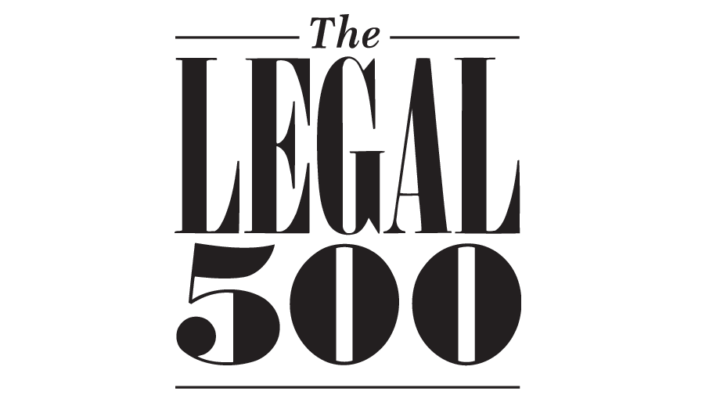BCL partners John Binns and Tom McNeill explore the implications of the Economic Crime and Corporate Transparency Bill 2022 for corporate crime lawyers in their recent article for LexisNexis.
The Economic Crime and Corporate Transparency Bill 2022 (the ‘Bill’) has been introduced as the second part of a legislative package, following on from the EC(TE)A 2022.
Key provisions of the EC(TE)A 2022 included:
- the creation of a Register of Overseas Entities (effectively extending the UK’s Persons of Significant Control regime to beneficial owners of non-UK entities that own UK property)
- reforms to the Unexplained Wealth Order regime (increasing its scope and restricting cost recovery from prosecuting authorities), and
- introducing strict liability civil monetary penalties in respect of financial sanctions breaches (removing the need to prove knowledge or reasonable cause to suspect)
The Bill proposals are similarly eclectic and evolutionary in nature, filling gaps and targeting weaknesses in existing provisions, with the provisions intended to ‘bear down further on kleptocrats, criminals and terrorists who abuse our financial system, strengthening the UK’s reputation as a place where legitimate business can thrive, while driving dirty money out of the UK’.
What are the key proposals in the Bill and their significance for corporate crime lawyers?
Reforms to Companies House
Companies House has long been criticised as a gateway for economic criminals operating in the UK and elsewhere, and an effective passport for criminal money entering the legitimate financial system.
Companies House is well regarded internationally and provides for some transparency for persons operating UK-registered corporate entities, thereby providing some legitimacy to UK-registered businesses. However, it notoriously lacks checks to prevent widescale and systemic abuse by determined economic criminals.
The proposals in the Bill would introduce such checks, including by:
- broadening the powers of the Registrar of Companies so that they become a more active gatekeeper over company creation, and a custodian of more reliable data concerning companies (and other UK registered entities, such as limited liability partnerships and limited partnerships)—including new powers to check, remove or decline information submitted to, or already on, the register
- introducing identity verification for all new and existing registered company directors, People with Significant Control, and those delivering documents to the Registrar
- providing the Registrar with more effective investigation and enforcement powers and introducing better cross-checking of data with other public and private sector bodies
The reforms are broadly sensible in principle (who could object to more comprehensive and reliable data?) but unlikely to be more than an administrative hurdle for sophisticated economic criminals. For years, successive UK governments have not demonstrated an intention to adequately fund law enforcement, and there is no reason to think that resourcing of the Registrar would be on anything other than a shoestring.
Cryptoassets
Cryptoassets can be useful in the commission of crimes (they are, for example, one of the few accepted payment mechanisms for cyber criminals following ransomware attacks), in evasion of tax, in breaching or circumventing financial sanctions, and for laundering money. Cryptoassets have however posed very real difficulties to law enforcement, in particular thanks to an uncertain legal route to ‘seize’ (as opposed to ‘freeze’ or ‘restrain’) cryptoassets.
The proposed reforms include:
- reforming the Proceeds of Crime Act 2002 (POCA 2002) to enable law enforcement to seize cryptoassets during the course of an investigation without first having arrested someone for an offence; enable officers to seize cryptoasset-related items; and enable the courts to better enforce unpaid confiscation orders against a defendant’s cryptoassets
- bringing cryptoassets within the scope of civil forfeiture powers in Part 5 of POCA 2002. The intention is for these powers to be simple and user friendly for law enforcement agencies
- enhancing investigative powers in Part 8 of POCA 2002, similar to investigatory powers that exist to support the forfeiture of cash, listed assets and funds in certain accounts
These reforms could make a real practical difference in the increasing number of cases where cryptoassets feature.
Extension of Serious Fraud Office (SFO)’s ‘section 2 powers’
A potentially significant reform for corporate crime lawyers is the proposed extension of ‘section 2 powers’ of the SFO under the Criminal Justice Act 1987 (CJA 1987).
CJA 1987, s 2 (s 2) enables SFO officers to compel persons to answer questions, furnish information, or produce documents—importantly, however, only once the SFO has formally opened an investigation, which in turn requires the Director to have reasonable grounds to suspect an offence involving serious or complex fraud, bribery or corruption.
This hurdle delays (and likely prevents) some cases from proceeding to a formal investigation, with the SFO having to rely on ‘traditional’ investigative tools while conducting preliminary enquiries, such as those available to the police. The s 2 compulsory powers remove obstacles (including confidentiality obligations) and allow the SFO a direct and speedier route to key evidence (failure to comply is a separate offence).
In 2008, SFO officers were granted access to their s 2 powers at the ‘pre-investigation’ stage of international bribery and corruption cases, due to particular difficulties in obtaining evidence in such cases. The proposal is now to extend the use of s 2 powers to all cases during the pre-investigation phase. While such a change would certainly make the pre-investigation stage of SFO investigations more effective, those charged with scrutinising the bill may wish to remind themselves why s 2 powers were not initially granted during the preinvestigation phase when the CJA 1987 was enacted. In short it was to seek to offer some protection, as Lord Elwyn-Jones put it, during scrutiny of the Criminal Justice Bill in the Lords Chamber, at a time that a coach and four was being driven through our civil liberties.
Section 2 compulsory powers are exercisable without judicial scrutiny, are in tension with the rule against selfincrimination, and impact on the Article 8 right to private and family life—which tensions are mitigated, if not avoided by, certain safeguards (for example, CJA 1987, s 2(8) provides that a statement made by a person in response to a s 2 requirement may be used against them only in certain circumstances).
The broad intention was to ensure that the draconian s 2 powers were only used when it was proportionate and necessary with a view to striking a fair balance between rooting out fraud but not being oppressive toward those whose affairs are investigated. The proposed reform seeks to move those boundaries.
Will the proposed reforms become law?
While the effectiveness of some proposed reforms may be challenged, and notwithstanding old-fashioned notions of civil liberties discussed above, most measures are unlikely to be controversial in the current climate, at least in the House of Commons. It will be a rare parliamentarian who seeks to water down or block provisions that are intended to prevent organised criminals, fraudsters, kleptocrats and terrorists from using companies and other corporate entities to abuse the UK’s open economy.
*This article was first published by LexisNexis on 5 October 2022. You can also read the article on LexisNexis website.




